The starting pitcher market has been boiling atop the MLB hot stove the past few weeks. Just check out a list of the top 20 or so starters who have changed teams since the end of the 2019 season:
Gerrit Cole, Hyun-Jin Ryu, Zack Wheeler, Corey Kluber, Madison Bumgarner, Dallas Keuchel, Cole Hamels, Wade Miley, Julio Teheran, Chase Anderson, Zach Davies, Tanner Roark, Gio Gonzalez, Brett Anderson, Jordan Lyles, Dylan Bundy, Kyle Gibson, Rick Porcello, Eric Lauer, Martin Perez, Kevin Gausman.
A few days ago, we did some estimates to create a snapshot of how wins have transferred around the majors so far this offseason. After this weekend's moves, which were headlined by the White Sox's signing of former Cy Young winner Keuchel to a three-year, $55 million deal and Toronto inking Ryu to a reported four-year, $80 million contract, approximately 191 wins have changed hands this winter via trades or free agency. Of those, 38.8% are accounted for by starting pitchers.
There is still work to be done. Wannabe contenders like the Padres, Angels and Twins still need rotation help. On the free-agent market, the lefty Ryu -- who finished second in NL Cy Young balloting last season -- was the last upper-tier starter out there, at least among those who might be holding out for a big three- or four-year deal. The other top options -- think Homer Bailey, Ivan Nova, Rich Hill, Taijuan Walker et al. -- are down-the-rotation value plays, for the most part.
What do these things tells us? Well, when you've got a free-agent class nearly empty of impact starters who carry with them any degree of certainty, and you've got teams trying to compete that have rotation holes remaining, there is only one recourse. Well, there are two -- the Pacific Rim free-agent market often gets overlooked, though the top couple of options appear to have been snagged already. (That would be two pitchers out of Korea: Kwang Hyun Kim, who signed with the Cardinals, and Josh Lindblom, who signed with the Brewers.)
Basically, though, we're talking about trades. Expect the whisper mill on that front to get busy over the next few weeks. Now that we know where Ryu has landed and we wait to see which trade rumors gain traction, let's see how the rotations stack up.
1. Washington Nationals (436.4)
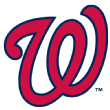 Projected starters
Projected starters
1. Max Scherzer (Score of 520.2 ranks No. 2; 1st-division No. 1)
2. Stephen Strasburg (Score of 481.3 ranks No. 5; 1st-division No. 1)
3. Patrick Corbin (Score of 458.2 ranks No. 7; 1st-division No. 1)
4. Anibal Sanchez (Score of 370.8 ranks No. 51; 2nd-division No. 2)
5. Joe Ross (Score of 325.0 ranks No. 131; 1st-division No. 5)
6. Austin Voth (Score of 323.0 ranks No. 134; 1st-division No. 5)
7. Erick Fedde (Score of 296.5 ranks No. 200; 2nd-division No. 7)
With the Astros losing Gerrit Cole, no one can match the power trio atop the Washington rotation. And while the Nats will have to fight their way into the postseason after losing franchise star Anthony Rendon, if they do make it, the outlook will be similar to 2019's. That is, Washington won't be a team you want to see in a short series.
As a second-division No. 2, Anibal Sanchez is a strong fourth starter for manager Davey Martinez, though he's at a stage of his career when his effectiveness can't be taken for granted. The Nationals need Sanchez to remain strong because there is a steep drop after him to Ross and Voth, while Fedde is really just a name to list here. Another veteran arm for added depth makes sense for this roster.
2. New York Yankees (426.3)
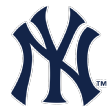 Projected starters
Projected starters
1. Gerrit Cole (Score of 553.0 ranks No. 1; 1st-division No. 1)
2. James Paxton (Score of 428.6 ranks No. 17; 2nd-division No. 1)
3. Masahiro Tanaka (Score of 393.5 ranks No. 35; 1st-division No. 2)
4. Luis Severino (Score of 363.5 ranks No. 62; 1st-division No. 3)
5. J.A. Happ (Score of 361.2 ranks No. 66; 1st-division No. 3)
6. Domingo German (Score of 343.2 ranks No. 99; 1st-division No. 4)
7. Jonathan Loaisiga (Score of 302.0 ranks No. 188; 1st-division No. 7)
First, we don't yet know the outcome of MLB's investigation into the domestic violence allegations made against German. We don't know whether he will -- or should -- pitch next season. But that's not the only uncertainty about this listing. With Happ slotting in as New York's No. 5 despite the $17 million he's due in 2020, he's been a frequent mention in the rumor mill.
If Happ is moved, the Yankees will clearly need to add a couple of veteran depth options. Fans of the Bronx Bombers certainly have high hopes for prospect Deivi Garcia, but he's only 20, so it's tough to pencil him in just yet. However it shakes out, the addition of Cole, coupled with an anticipated season of better health for Severino, gives New York one of the game's best starting units.
3. New York Mets (405.2)
 Projected starters
Projected starters
1. Jacob deGrom (Score of 501.5 ranks No. 3; 1st-division No. 1)
2. Noah Syndergaard (Score of 404.9 ranks No. 26; 2nd-division No. 1)
3. Marcus Stroman (Score of 390.2 ranks No. 38; 1st-division No. 2)
4. Rick Porcello (Score of 361.8 ranks No. 65; 1st-division No. 3)
5. Steven Matz (Score of 355.0 ranks No. 71; 1st-division No. 3)
6. Michael Wacha (Score of 323.3 ranks No. 133; 1st-division No. 5)
7. Walker Lockett (Score of 295.2 ranks No. 205; 2nd-division No. 7)
The Mets are banking on Wacha to bounce back and give them the only depth option they'll need if the other starters remain healthy, because all are capable of approaching 200 innings or more. It's a strong group. The rotation has been New York's strength for a few years, but for the Mets to get back into the postseason in 2020, they'll need this unit to carry them. That's especially true since, thus far, the club hasn't done much to address last season's leaky bullpen.
4. Cincinnati Reds (399.5)
 Projected starters
Projected starters
1. Trevor Bauer (Score of 431.5 ranks No. 15; 1st-division No. 1)
2. Luis Castillo (Score of 426.8 ranks No. 18; 2nd-division No. 1)
3. Sonny Gray (Score of 423.2 ranks No. 20; 2nd-division No. 1)
4. Anthony DeSclafani (Score of 367.8 ranks No. 53; 2nd-division No. 2)
5. Wade Miley (Score of 354.1 ranks No. 73; 1st-division No. 3)
6. Tyler Mahle (Score of 326.6 ranks No. 126; 1st-division No. 5)
7. Lucas Sims (Score of 303.4 ranks No. 184; 1st-division No. 7)
It's amazing how abruptly the Reds have turned around their starting pitcher outlook. After years of struggling to piece together anything resembling a big-league-worthy group, Cincinnati suddenly features one of the best on-paper rotations in baseball. In Bauer, Castillo and Gray, the Reds boast a trio of hurlers who rate as No. 1 starters. Add a second-division No. 2 in DeSclafani in their fourth slot and solid veteran Miley in the 5-hole and the Reds will enter the majority of their games in 2020 favored to win the starting pitcher battle. That's pretty incredible given where this group was just a couple of years ago.
5. Cleveland Indians (397.5)
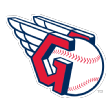 Projected starters
Projected starters
1. Mike Clevinger (Score of 452.6 ranks No. 8; 1st-division No. 1)
2. Shane Bieber (Score of 444.8 ranks No. 12; 1st-division No. 1)
3. Carlos Carrasco (Score of 399.1 ranks No. 30; 2nd-division No. 1)
4. Zach Plesac (Score of 337.7 ranks No. 105; 1st-division No. 4)
5. Aaron Civale (Score of 334.1 ranks No. 111; 2nd-division No. 4)
6. Adam Plutko (Score of 321.4 ranks No. 137; 2nd-division No. 5)
7. Logan Allen (Score of 303.6 ranks No. 183; 1st-division No. 7)
The Indians Pitching Factory has become a thing over the past couple of seasons, as Cleveland just keeps churning out productive starters. Even without Bauer and Corey Kluber, the tandem of Clevinger and Bieber still gives the Tribe one of baseball's best one-two punches. Carrasco gives them a third No. 1, though with an overall No. 30 ranking, he's on the cusp of being a No. 2. Even so, on paper there's a stark drop-off to Plesac in the 4-hole, and the penny-pinching Indians need the factory to keep churning out its signature product. In this case, that would be in the form of Plesac, Civale and Plutko outproducing their projections just as Clevinger and Bieber did last season.
6. Texas Rangers (391.7)
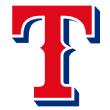 Projected starters
Projected starters
1. Lance Lynn (Score of 439.0 ranks No. 14; 1st-division No. 1)
2. Mike Minor (Score of 404.4 ranks No. 27; 2nd-division No. 1)
3. Corey Kluber (Score of 392.1 ranks No. 36; 1st-division No. 2)
4. Kyle Gibson (Score of 382.3 ranks No. 45; 1st-division No. 2)
5. Jordan Lyles (Score of 347.3 ranks No. 88; 2nd-division No. 3)
6. Kolby Allard (Score of 314.4 ranks No. 151; 1st-division No. 6)
7. Brock Burke (Score of 307.8 ranks No. 168; 2nd-division No. 6)
You might not think of Lynn as an ace, even though he finished fifth in last year's AL Cy Young balloting. In our book, if you project as a first-division No. 1, you're an ace. Rangers GM Jon Daniels has put together his strongest on-paper rotation in years. This system sees Texas as flashing two No. 1s, two No. 2s and a No. 3. That's pretty good. And don't sleep on Allard as the depth option. He's not that far removed from top-prospect status. The Rangers' roster needs some work, but without springing for a mega-contract, Daniels has shored up a glaring weakness in the Texas outlook.
7. Boston Red Sox (389.4)
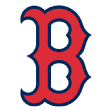 Projected starters
Projected starters
1. Chris Sale (Score of 469.1 ranks No. 6; 1st-division No. 1)
2. Eduardo Rodriguez (Score of 413.7 ranks No. 22; 2nd-division No. 1)
3. David Price (Score of 379.6 ranks No. 46; 2nd-division No. 2)
4. Martin Perez (Score of 337.4 ranks No. 106; 2nd-division No. 4)
5. Nathan Eovaldi (Score of 336.1 ranks No. 108; 2nd-division No. 4)
6. Tanner Houck (Score of 294.4 ranks No. 206; 2nd-division No. 7)
7. Hector Velazquez (Score of 293.8 ranks No. 207; 2nd-division No. 7)
Obviously this rating is predicated on the Red Sox getting bounce-back seasons from Sale and Price and Rodriguez maintaining his gains from last season. And those things need to happen, because the outlook for the rest of the rotation is more of a "just hanging in there" proposition. Perez had his moments in Minnesota last season but faded badly down the stretch. He slots as a second-division No. 4 -- not the worst outlook for a team's fourth starter, but not the best for a contending club. And it's hard to see much in terms of untapped upside in either Perez or Eovaldi.
8. Tampa Bay Rays (389.3)
 Projected starters
Projected starters
1. Charlie Morton (Score of 448.0 ranks No. 11; 1st-division No. 1)
2. Blake Snell (Score of 426.1 ranks No. 19; 2nd-division No. 1)
3. Tyler Glasnow (Score of 371.5 ranks No. 50; 2nd-division No. 2)
4. Yonny Chirinos (Score of 344.1 ranks No. 96; 1st-division No. 4)
5. Ryan Yarbrough (Score of 342.9 ranks No. 100; 1st-division No. 4)
6. Brendan McKay (Score of 318.5 ranks No. 140; 2nd-division No. 5)
7. Brent Honeywell (Score of 309.5 ranks No. 165; 1st-division No. 6)
Check out the rotation scores for Boston and Tampa Bay -- 389.4 for the BoSox and 389.3 for the Rays. Virtually no difference. But then look at the names and consider the yawning chasm in upside. If you were Tampa Bay lead exec Erik Neander, would you trade your rotation straight up for that of former colleague Chaim Bloom? (We're ignoring the considerable financial implications here -- just straight-up baseball.) No way.
That's because as strong as the Rays look on paper as constituted, when you consider Morton's consistency, a full healthy season for Snell, health and secondary pitch development for the flamethrowing Glasnow and the lofty prospect statuses of McKay and Honeywell, this group has the potential to be baseball's best. Kevin Cash may not be calling on many openers in 2020.
9. Houston Astros (388.2)
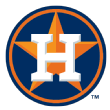 Projected starters
Projected starters
1. Justin Verlander (Score of 501.3 ranks No. 4; 1st-division No. 1)
2. Zack Greinke (Score of 413.6 ranks No. 23; 2nd-division No. 1)
3. Lance McCullers Jr. (Score of 335.4 ranks No. 109; 2nd-division No. 4)
4. Jose Urquidy (Score of 334.4 ranks No. 110; 2nd-division No. 4)
5. Rogelio Armenteros (Score of 313.9 ranks No. 153; 1st-division No. 6)
6. Framber Valdez (Score of 312.5 ranks No. 159; 1st-division No. 6)
7. Cristian Javier (Score of 296.8 ranks No. 196; 2nd-division No. 7)
You would expect the Astros to add at least some kind of veteran presence to this mix, though they might have to free up some money to do so. If this is the group, Houston will be hoping for a couple of breakouts among Armenteros, Valdez, Javier and possibly Forrest Whitley, Cionel Perez or Bryan Abreu. It's not the worst bet. While Houston's system is thinner than it has been in years, its organizational starting pitching remains a strength. Nevertheless, it's a more uncertain group than it has been the past couple of years, and a lot of its relative success hinges on a strong recovery by McCullers from Tommy John surgery.
10. Los Angeles Dodgers (386.2)
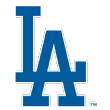 Projected starters
Projected starters
1. Clayton Kershaw (Score of 448.0 ranks No. 10; 1st-division No. 1)
2. Walker Buehler (Score of 441.9 ranks No. 13; 1st-division No. 1)
3. Kenta Maeda (Score of 362.4 ranks No. 64; 1st-division No. 3)
4. Ross Stripling (Score of 332.8 ranks No. 115; 2nd-division No. 4)
5. Tony Gonsolin (Score of 314.0 ranks No. 152; 1st-division No. 6)
6. Dustin May (Score of 313.9 ranks No. 153; 1st-division No. 6)
7. Julio Urias (Score of 312.8 ranks No. 158; 1st-division No. 6)
As with the Astros, L.A. will be looking from some youthful ascendents among Gonsolin, May and Urias. Because it's the Dodgers, you almost assume this will happen. Still, this is yet another team that you'd expect to add a veteran free agent. And the Dodgers' certainty in this area would certainly have been bolstered by a reunion with Ryu.
The next five
11. Cardinals (374.4); 12. Phillies (372.7); 13. Cubs (369.9); 14. Braves (368.2); 15. Diamondbacks (365.6).
If Korean import Kim slots as a true No. 2 or so for St. Louis, the Cardinals will feature a top-10 group. And if getting-long-in-the-tooth prospect Alex Reyes can finally turn the corner, it could be a rotation of exceptional depth. Such a development would cover the Redbirds against a sudden decline for stalwart Adam Wainwright.
The Phillies figure to have a couple of No. 1s in Aaron Nola and Wheeler, but for this group to shine, it'll need a bounce-back in health and effectiveness from Jake Arrieta. The Cubs and the Diamondbacks will likely enter the season with these numbers locked in, but the Braves might still add to a mix that now includes Cole Hamels.
Five after that
16. Rockies (364.0); 17. White Sox (361.8); 18. Padres (359.5); 19. Twins (357.1); 20. Blue Jays (356.4).
This is the most fascinating group in the entire rankings. The Rockies, it seemed, finally cracked the problem of featuring a strong rotation at Coors Field in 2018. Then last year, nearly the entire pitching staff went into the toilet. The White Sox have added Keuchel and Gio Gonzalez after missing out on Wheeler. They are probably finished adding in that area, so for Chicago to feature a playoff-caliber rotation, it'll need two or three of its young pitchers to turn the corner, with the focus on Reynaldo Lopez, Dylan Cease and Michael Kopech.
The Twins re-upped with Jake Odorizzi and Michael Pineda while bidding adieu to Martin Perez and Kyle Gibson. (Pineda will miss the first few weeks of the 2020 season because of a PED suspension.) The Twins have not added an external starter yet despite reportedly being in the mix for guys like Bumgarner and Wheeler. Minnesota needs to find another couple of starters if it wants to survive regression in 2020, much less take the next step toward title contention.
Five more
21. Angels (351.9); 22. Athletics (349.0); 23. Brewers (347.3); 24. Pirates (345.0); 25. Tigers (344.4).
Then we have the Angels. They've done a lot to add to their rotation by trading for Dylan Bundy and signing Julio Teheran. However, missing on Ryu hurts. Adding him would have bumped the Angels into the top half of the rotation ratings. Losing out on him bumps them down into the bottom third, as Toronto jumps up from the bottom five. After missing on Cole, Ryu, Bumgarner, Wheeler and Keuchel, the Angels have work to do. Shohei Ohtani might rate as an ace on a per-inning basis, but right now it seems the Angels won't be targeting more than 20 starts or so for his first year back on the mound after surgery.
The A's have a lot more cachet with their rotation than these numbers indicate. First, the numbers for Sean Manaea are muted because of his long injury absence, but he looked terrific down the stretch last season. And the Oakland system might be on the verge of producing a couple of possible aces in Jesus Luzardo and A.J. Puk. Oakland should easily end up with a top-15 rotation, with the potential for even better than that.
The only other contender in this group is Milwaukee. The Brewers also probably rate a little better in reality, if only because Lindblom is tough to project based on his up-and-down career. His sudden allure for MLB teams was based on a steep uptick in Korea after he honed his split-fingered fastball. Still, Milwaukee needs Brandon Woodruff to become a No. 1 and Corbin Burnes to make a leap. Even then, the Brewers might once again be headed for the bottom five in rotation innings.
Bottom five
26. Royals (337.8); 27. Marlins (337.7); 28. Giants (335.8); 29. Mariners (327.1); 30. Orioles (320.4).
These are not your father's Giants.
The magnificent free-agent seven
26. Larrupin Limbos (337.36)
1. Rich Hill (Score of 364.4 ranks No. 58; 2nd division No. 2)
2. Homer Bailey (Score of 352.0 ranks No. 82; 2nd division No. 3)
3. Ivan Nova (Score of 347.5 ranks No. 91; 1st division No. 4)
4. Jhoulys Chacin (Score of 341.2 ranks No. 106; 2nd division No. 4)
5. Alex Wood (Score of 312.7 ranks No. 162; 1st division No. 6)
6. Robbie Erlin (Score of 308.1 ranks No. 171; 2nd division No. 6)
7. Collin McHugh (Score of 303.3 ranks No. 178; 2nd division No. 6)
The free-agent market has thinned, but there are a couple of good options here. Hill will miss the first part of next season after elbow surgery, but he'll likely contribute to a contender at some point next season. More than anything, his resiliency is something you can count on. Since I know you're wondering, we took this projected rotation for the Limbos and subbed it in for the Orioles -- which improved the overall quality of starting pitching in the major leagues. The Limbos ranked 26th.
